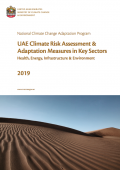
The climate change document UAE Climate Risk Assessment & Adaptation Measures in Key Sectors: Health, Energy, Infrastructure & Environment is a synthesis of the UAE's climate risk assessment conducted in its four key sectors - health, energy, infrastructure, and the environment - as the first step to implement the National Climate Change Adaptation Program.
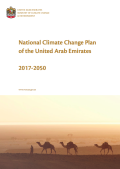
The living document National Climate Change Plan of the United Arab Emirates 2017-2050 consolidates the UAE's climate action under a single framework and identifies strategic priorities, covering both mitigation and adaptation measures.
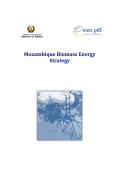
As pressure on biomass resources is increasing Mozambique Biomass Energy Strategy aims to reverse the process by developing the multiple and complementary solutions to ensure a sustainable biomass supply well into the near future.
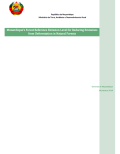
Mozambique's Forests Reference Emission Level for Reducing Emissions from Deforestation in Natural Forests was developed with the aim to build capacity for the implementation of REDD+ strategy at all levels, which was recently approved by the Government in December 2016. The Republic of Mozambique aims to promote sustainable development, resilience to climate change, integrated rural development focused in forests, agriculture, and energy.
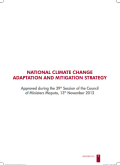
The national document Mozambique National Climate Change Adaptation and Mitigation Strategy represents a turning point in Mozambique's response to the challenges of climate change, indicating a clear set of strategic actions to be implemented so that Mozambique is able to ensure a more prosperous, resilient and sustainable future.
